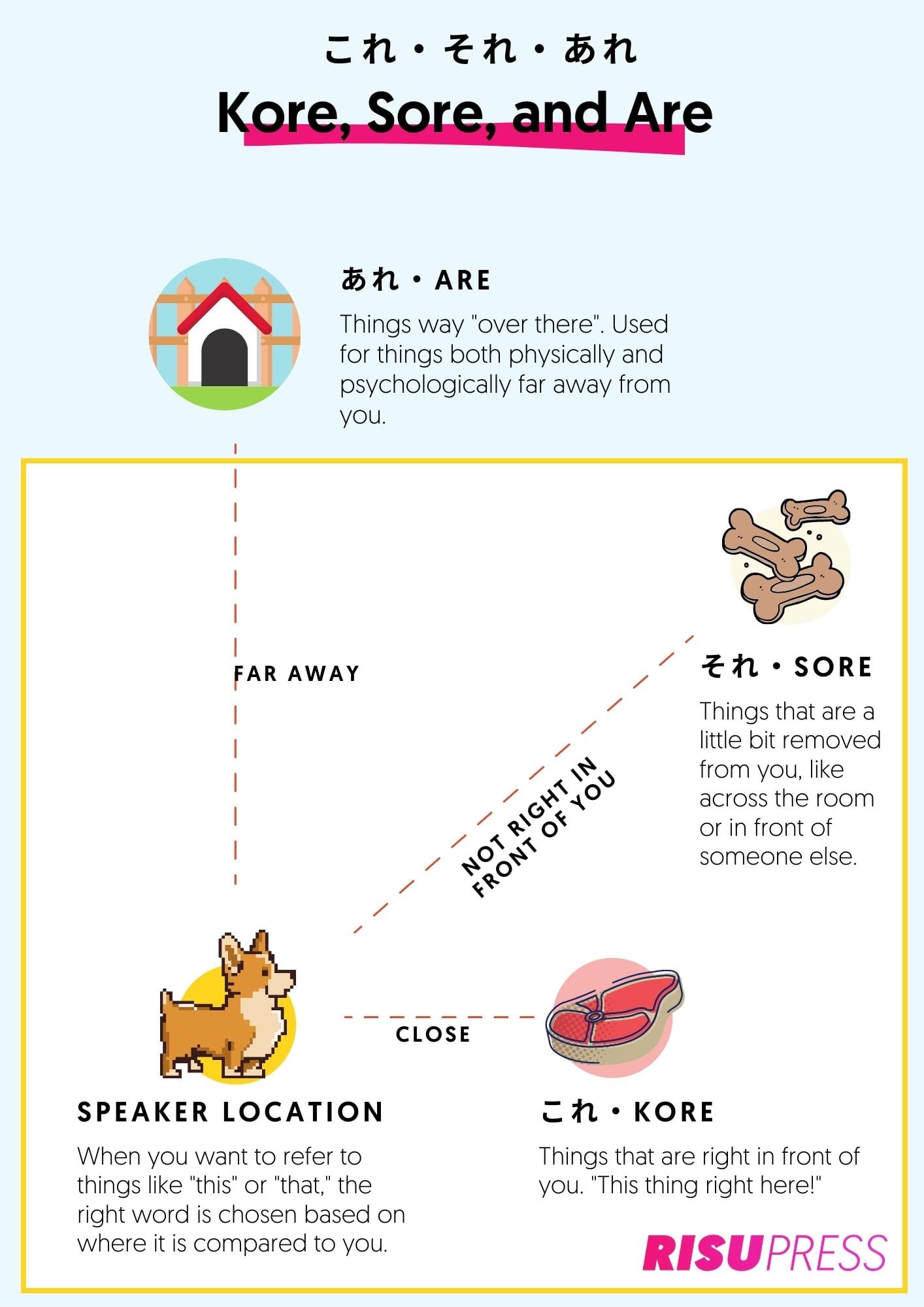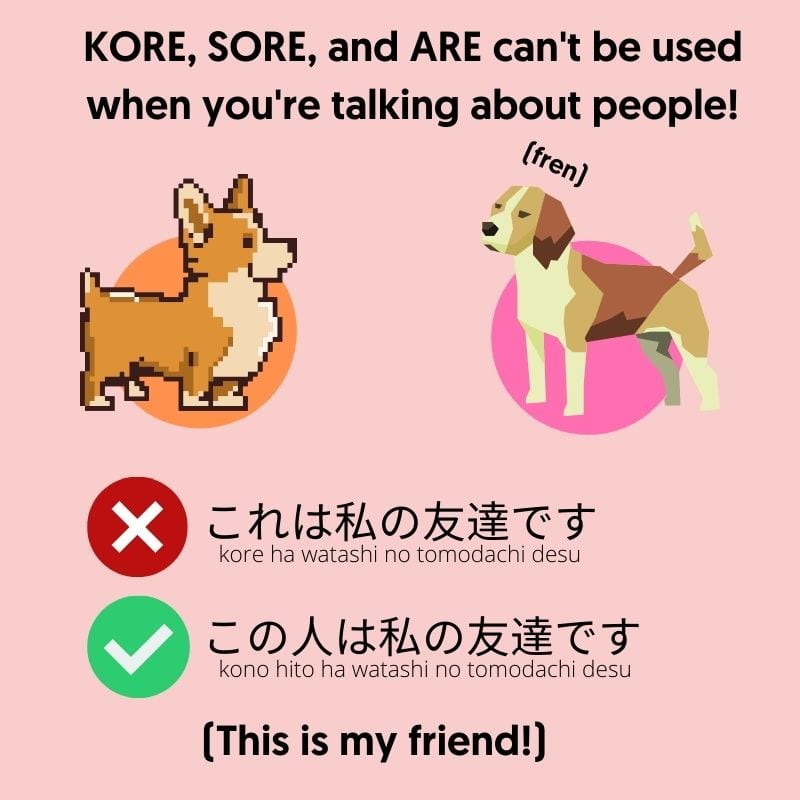No products in the cart.
February 16
Understanding Kore, Sore, and Are: これ・それ・あれ
0 comments
So, you like talking about things?
How about... This thing here? Or that thing there?
Sounds like you need some handy Japanese pronouns!
Today, we're going to look at kore, sore, and are, and how they are used in Japanese.
Compared to the "this" and "that" of English, Japanese gives you 3 pronouns to talk about things.
Does 3 sound a bit confusing?
Don't worry, it's pretty simple.
Basically, you decide which pronoun to use in a situation based on where that "thing" is in relation to you, the speaker.
For instance, something you're holding, or something right in front of you is これ (kore). If it's something right in front of the person you're talking to, or maybe it's across the room, you use それ (sore).
Finally, あれ (are) is used when you want to refer to something far away or out of sight. An example of this could be the keys you forgot at home, or the office downtown.
Are can also be used to refer to something psychologically distant, such as "the economic situation in Kuwait," or "the anniversary you forgot."

Now that you've nailed exactly what kore, sore, and are, mean, it's important to know when to use them.
For the most part, you can think of Japanese pronouns exactly like you would English pronouns, except for one major difference.
You can't use them to refer to people!
That's right, Japanese is big on using names as much as possible, and maybe この人 (kono hito), その人 (sono hito), あの人 (ano hito) if you don't know their name.
Don't make the mistake of trying to introduce your friend at a party by saying, これは私の友達です (kore ha watashi no tomodachi desu).
People will laugh.
Instead, say, この人は私の友達です (kono hito ha watashi no tomodachi desu).

That's it – nothing too complicated!
これ = This
それ = That
あれ = That over there
And if you ever hear someone saying それはあれだね (sore ha are da ne), they're not crazy. It means, "that's... yeah," as a type of conversation filler.
Go have fun with your new Japanese pronouns!
Did you like this article? Please share it around!
Tags
japanese
Never miss a post – let us slide into your inbox with hot articles.
Session expired
Please log in again. The login page will open in a new tab. After logging in you can close it and return to this page.